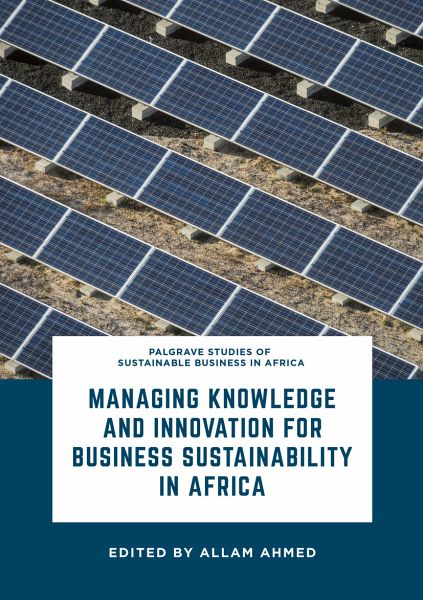
Managing Knowledge and Innovation for Business Sustainability in Africa (eBook, PDF)
Versandkostenfrei!
Sofort per Download lieferbar
96,95 €
inkl. MwSt.
Weitere Ausgaben:

PAYBACK Punkte
48 °P sammeln!
Addressing the issues that will be central to Africa's various attempts to effectively manage knowledge and innovation for sustainable business management, this edited book makes a timely contribution to research on business in Africa. Coinciding with the recently launched Science, Technology and Innovation Strategy for Africa 2024 (STISA-2024) by the African Union (AU), which emphasises the critical role of science, technology and innovation for Africa's socio-economic development and growth, the book echoes these themes with a multi-disciplinary and multi-sectoral approach to knowledge and i...
Addressing the issues that will be central to Africa's various attempts to effectively manage knowledge and innovation for sustainable business management, this edited book makes a timely contribution to research on business in Africa. Coinciding with the recently launched Science, Technology and Innovation Strategy for Africa 2024 (STISA-2024) by the African Union (AU), which emphasises the critical role of science, technology and innovation for Africa's socio-economic development and growth, the book echoes these themes with a multi-disciplinary and multi-sectoral approach to knowledge and innovation management in Africa. Also containing case studies relating to various growing collaborations between education and research institutions, private and public entities as well as commercialisation of research and innovation outputs, Managing Knowledge and Innovation for Business Sustainability in Africa covers the key themes to provide an enabling environment for STI development in the African content.
Dieser Download kann aus rechtlichen Gründen nur mit Rechnungsadresse in A, B, BG, CY, CZ, D, DK, EW, E, FIN, F, GR, HR, H, IRL, I, LT, L, LR, M, NL, PL, P, R, S, SLO, SK ausgeliefert werden.












